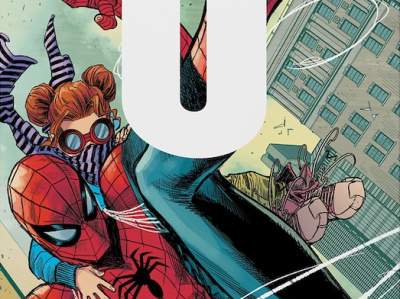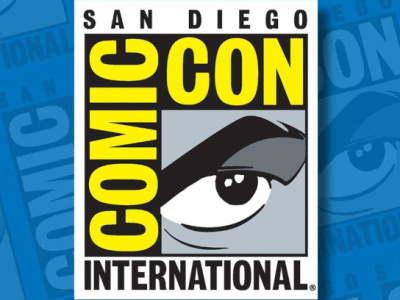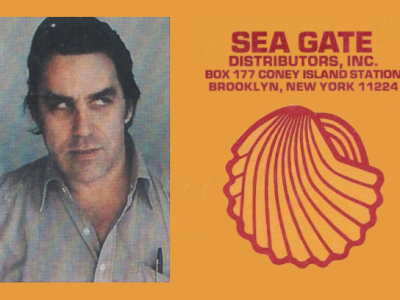 Last week’s announcement that attendance at New York ComicCon 2014 had topped 151,000 set off a new round of the "who’s bigger?" debate between ReedPOP’s East Coast extravaganza and the mighty San Diego Comic-Con, which reports a venue-capped attendance number of around 130,000. That question is of more than academic interest, since, as I’ve argued previously, remaining the undisputed center of the fandom-entertainment nexus is of existential importance to SDCC.
Last week’s announcement that attendance at New York ComicCon 2014 had topped 151,000 set off a new round of the "who’s bigger?" debate between ReedPOP’s East Coast extravaganza and the mighty San Diego Comic-Con, which reports a venue-capped attendance number of around 130,000. That question is of more than academic interest, since, as I’ve argued previously, remaining the undisputed center of the fandom-entertainment nexus is of existential importance to SDCC.Surely size matters in a business where results are measured in ticket sales and the ability to deliver massive audiences to exhibitors. NYCC’s rise to the top in this metric reflects the success of its event management and its ability to exploit the superior scale and infrastructure of New York, despite the many deficiencies of the Javits Center as a venue.
The bigger question is to what degree NYCC’s rise as an economic force signals the decline of SDCC as a cultural force.
Toasted? In a post dated September 22, 2014, just prior to New York ComicCon, SDCC’s in-house Toucan Blog posted the news that the event industry trade publication BizBash had selected Comic-Con International as the “number one entertainment industry event” for the second consecutive year, topping other household-name gatherings like the Sundance Film Festival, the Kennedy Center Honors, and the Television Critics Association's (TCA) Upfront Week for top honors.
This is a clever and necessary bit of branding. It recalls the memorable scene from the first season of Mad Men where Don Draper explains to a room full of tobacco executives that having a bunch of competitors with essentially identical products can be a benefit, because it allows each company to stake out a unique claim based purely on perception. "Everyone else’s cigarettes are poison," explains Draper. "Lucky Strikes are toasted."
SDCC’s leadership in the newly competitive and increasingly undifferentiated world of fan conventions is predicated on this same kind of cultural construct. Whatever the attendance numbers, shows like NYCC, Salt Lake City Comic Con, Wizard World and the others are fan gatherings: massive, popular, hugely profitable fan gatherings with many of the same basic trappings as Comic-Con, but not, in the same sense, an industry event.
Everyone else’s cons are fun. SDCC is essential.
But is it?
Shift in fan culture. Perhaps the most profound trend around fan events in the past 10 years is the changing shape of fandom itself. Data shows fandom demographics are shifting towards gender equity and youth, especially in terms of con attendance.
To some extent this reflects an overdue correction. But more fundamentally, it shows that a decade’s worth of multi-billion dollar investments by some of the largest media and entertainment companies in the world in expanding the audience--and shifting the audience’s loyalties from specific media types and individual creators to transmedia brands and company-owned IP--is paying off.
The effect of this shift on convention dynamics is subtle but profound. In the early 00’s, the mainstream discovery of comics culture represented a vindication of decades’ worth of fan enthusiasm that had incubated in a despised and neglected niche. To a certain group of fans from the 70s, 80s and 90s--who by that time were established in "real life" professional careers--the ability to identify as an early adopter of newly-popular comics formed an important part of their personal identity. Being a comics geek, able to meet the high entry costs of the subculture, became a badge of hipness. Call it the "I liked the band before they were cool" phenomenon.
This place is too popular--no one goes there anymore. Now that the floodgates have opened, the entry costs have dropped if not disappeared. Comics are mainstream. Legitimate knowledge of characters and storylines can come just as easily from movies or videogames as from canonical texts. There is no cultural bonus awarded for knowing Tony Stark is Iron Man or acknowledging Jack Kirby as co-creator of the Marvel Universe. "You went to SDCC? Cool! I went to the one in Salt Lake City!"
For the cultural vanguard who helped provide air cover for comics’ march into mainstream popularity, the devaluation of specialized knowledge, insight and exclusivity makes the whole area less attractive as a venue for intellectual entre preneurship. You can already see the impatience and exasperation creeping in to informed discussions of comic movies and the various other commercial manifestations of the boom.
The elites are revolting. As one industry insider said to me, summing up the feelings of many folks I’ve talked to in the past year, "We have everything we ever wanted when we were kids--more and better comics, giant movies, great toys, conventions every weekend--and now I just want it all to go away."
On one hand, the triumph of comics no longer depends on hipsters and elites leading the way. That is, in many ways, a good thing. But it also drains away a lot of intangible vitality that elevates events like Comic-Con into something more than fan festivals.
Comic conventions like NYCC are benefiting from this broadening culture in all kinds of ways, particularly at the ticket window. But for SDCC, which aspires to be, and depends on being, something more, the effect of this shift is far more profound than a drop in attendance rankings.
--Rob Salkowitz (@robsalk) is author of Comic-Con and the Business of Pop Culture.
The opinions expressed in this column are solely those of the writer, and do not necessarily reflect the views of the editorial staff of ICv2.com.







